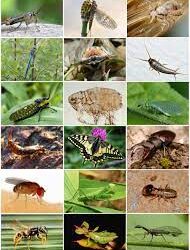Termites might be small, but they can cause big problems! These pesky critters love to munch on wood, and if left unchecked, they can seriously damage your home, making the structure weak and costing you a pretty penny in repairs. Who wants that? Not only do termites threaten your wallet, but they’re also a headache for businesses, potentially leading to expensive downtime. It’s crucial to tackle termite issues head-on and keep these unwanted guests at bay. Struggling to figure out how? Relax. This blog’s here to guide you through combating termites effectively, helping protect your home sweet home with ease. Rest assured, you’ll find practical solutions right below.
Understanding Termites: Identifying, Locating, and Recognizing Them at Home
Termites are pesky little insects that can cause quite a bit of trouble if they decide to make your home their own. They’re tiny, sneaky and love to chew through wood, making them a homeowner’s nightmare. These pests are usually found in warm, moist environments – so if you’ve got a nice damp spot in your home, chances are, they might be interested. Different types of termites prefer different habitats, but generally, they enjoy hiding out in walls, floors, or even furniture. Spotting an infestation can be tricky, but look out for telltale signs like hollow-sounding wood, small piles of droppings, or mud tubes on your walls. Sometimes, you might even catch a whiff of a musty odor, signaling trouble. If you suspect a termite invasion, it’s crucial to act sooner rather than later, as these critters can munch through wood pretty quickly, potentially causing structural issues in your home.Avoiding the Headaches from Home Termite Treatments
Here’s a detailed list of common problems caused by termites:- Structural Damage: Termites are infamous for wreaking havoc on wooden structures. Their appetite for cellulose leads them to chew through beams, floors, and even walls, undermining the structural integrity of your home. Left unchecked, termite infestations can result in costly repairs and even harm the safety of the structure.
- Health Risks: While termites don’t directly transmit diseases to humans, their presence can exacerbate allergies or asthma. Frass (termite droppings) and body parts can become airborne, causing respiratory discomfort when inhaled by sensitive individuals.
- Food Contamination: Although termites primarily feast on wood, they might still come into contact with packaged food. Their invasive nature means that they could inadvertently spread dirt or bacteria from one area to other possessions, posing health risks.
- Property Devaluation: A termite infestation can dramatically reduce your property’s value. Potential buyers may shy away or demand reduced prices due to the costly repairs associated with termite damage. Not great news if you’re planning to sell!
- Damage to Pets and Gardens: Certain termite treatments, if not applied correctly, can be hazardous to your pets or garden. Contaminated soil can affect plant health, while chemical residues can pose risks to your furry friends.
- Costly Invasion: A termite invasion is a financial burden. Over time, the cost of repairs and extermination can pile up, which may cause unnecessary stress. Regular maintenance and inspections are essential to prevent such unwanted expenses.
Remember, understanding these problems is the first step in safeguarding your home from the pesky invaders known as termites. Prevention is often easier, and certainly less stressful, than cure. Stay proactive!
Natural and Simple Ways to Eliminate Termites at Home
- Essential Oils: Many essential oils, like orange oil or neem oil, are natural termite repellents. You can mix a few drops of these oils with water in a spray bottle and spray the mixture directly onto wooden surfaces. The aroma not only helps deter termites but is also pleasant for the human nose. It might take a few applications over weeks, but it’s a safer alternative to chemicals.
- Vinegar: Vinegar is an everyday household item that can help control termite populations. Mix white vinegar with equal parts of lemon juice and pour it into a spray bottle. Spritz it on affected areas regularly for a few days. The acidity in vinegar acts as a natural pesticide, breaking down termite’s exoskeleton over time.
- Natural Predators: Introducing beneficial insects like nematodes in your garden or around your house can help control termite populations naturally. Nematodes are microscopic worms that attack termites by entering their bodies. You can sprinkle them around infested areas; they’re safe for humans and pets too!
- Boric Acid: Create a boric acid paste by mixing it with water and applying it to areas where termites are present. Boric acid affects the termites’ nervous system, causing them to die upon ingestion. Though effective, it’s best to use it with caution and keep it away from children and pets.
- Cardboard Traps: Termites love cellulose, and cardboard is filled with it. Wet some cardboard pieces and stack them near termite-prone areas. Once they’ve accumulated on the cardboard, remove and burn them. It’s an effective method to reduce numbers but remember, it’s more of a control method than a complete solution.
- Herbs like Mint: Planting mint or using mint oils around entry points can be a natural deterrent for termites. Termites dislike the strong smell, which makes these herbs a simple, eco-friendly way to keep them at bay. Just crush some leaves and spread them around or use mint oil sprays for continuous protection.
Chemical solutions effectively tackle termites at your home safely.
Dealing with termites can feel like an uphill battle, can’t it? If you’re considering a more aggressive approach, chemical treatments might just be the way to go. Here’s a quick rundown of some effective options:- Termidor: This is a popular choice for its non-repellent nature, which means termites can’t detect it. You’ll need to apply it as a liquid around your home’s perimeter, creating a protective barrier.
- Premise: Another non-repellent termiticide, Premise works by spreading through termite communication. Mix it with water and apply it to the soil around your home. It works wonderfully because, as termites travel through the treated zone, they carry it back to their colony, ensuring widespread elimination.
- Taurus SC: A great option for direct soil treatment, Taurus SC is effective in targeting subterranean termites. Dilute it in water and inject it into the soil around your foundation. It not only eliminates the current infestation but also wards off new ones.
- Spectracide Terminate: This is a bait system and not a liquid treatment. Place the bait stakes around your yard. Termites are attracted to them, ingest the poison, and then spread it to their nest, reducing the colony’s numbers significantly.
Essential Prevention Tips to Keep Termites from Invading Your Home
It’s important to stay on top of potential pest problems before they become absolute nightmares. An effective way to ensure your home stays pest-free is by adopting prevention strategies. Here’s a structured list to guide you through:- Proper Waste Disposal and Cleanliness: Keep your home tidy and dispose of rubbish regularly. Pests like rodents and cockroaches are attracted to leftover food and rubbish bins.
- Sealing Entry Points and Cracks: Regularly inspect your home for cracks and holes that might serve as entry points for pests. Use caulk or other appropriate materials to seal them.
- Using Pest Deterrents: Install screens on windows and doors to prevent pests from entering. Consider using natural deterrents like essential oils or herbs, which can be effective and non-toxic.
- Regular Inspections and Maintenance: Schedule regular inspections for signs of pests. Look for droppings, nest materials, or unusual smells. If needed, consult professional pest control services for a thorough check.
- Garden Maintenance: Keep your garden neat and remove any debris, as these can attract pests. Trim trees and bushes to keep them from touching your house, preventing easy access to pests.
- Proper Food Storage: Store food items in airtight containers to keep them safe from pests. Ensure your pantry is clean and free of crumbs.
- Check for Leaks: Fix any leaks promptly, as moisture can attract pests like termites and mould-producing insects.
- Pet Care: If you have pets, make sure their bowls are clean and food is not left out for too long, as this can attract pests like ants or flies.
Debunking the Myths on Termite Removal from Your Home
| Myth | Fact |
|---|---|
| Termites can be eradicated with DIY methods alone. | Comprehensive termite control often requires professional intervention to ensure thorough elimination. |
| Boiling water is a foolproof way to kill termites. | Boiling water might kill a small number of termites on contact but won’t reach the entire colony hidden behind walls or underground. |
| A termite-free home is one without visible damage. | Termites can be silent destroyers, causing damage long before visible signs appear. Regular inspections are crucial. |
| Termite problems come only from wooden structures. | While termites target wood, they can also infest drywall, paper, and other materials containing cellulose. |
| Termites dwindle in colder weather. | Termites don’t hibernate; they remain active year-round, especially in heated homes. |















